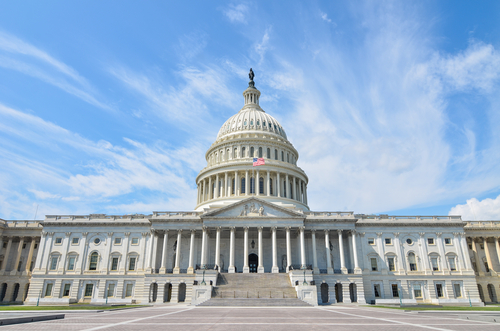
Hawley Speaks Against Capital One’s Discover Takeover
Sen. Josh Hawley (R-MO) has joined with some Democrats in taking a stand against what he sees as a harmful consolidation in the financial sector. On Wednesday, he objected to the proposed acquisition of Discover Financial Services by Capital One, which was announced earlier this week. The merger would undoubtedly significantly alter the landscape of the credit card market in the United States.
In an unusual alignment with progressive Sen. Elizabeth Warren (D-MA), Hawley wrote to Jonathan Kanter, the assistant attorney general for the Justice Department’s Antitrust Division, describing the proposed merger as “destructive corporate consolidation at its starkest.” He further warned of a new “juggernaut in the credit card market” with “unprecedented powers to extort American consumers.”
Sounds like the credit card companies finding another way to screw the American people. This merger should be blocked – and Congress ought to cap credit card rates pronto https://t.co/5l2vuG3qjH
— Josh Hawley (@HawleyMO) February 21, 2024
On Tuesday, Warren posted to X, the platform formerly known as Twitter, that the proposed acquisition “threatens our financial stability, reduces competition, and would increase fees and credit costs for American families.”
The merger of @CapitalOne and @Discover threatens our financial stability, reduces competition, and would increase fees and credit costs for American families.
This Wall street deal is dangerous and will harm working people.
Regulators must block it immediately.
— Elizabeth Warren (@SenWarren) February 20, 2024
The deal, valued at $35.3 billion, proposes that Discover shareholders receive 1.0192 Capital One shares for each Discover share, which presents a premium based on Discover’s recent market performance. But beyond the numbers, the merger’s implications on market competition and consumer choice are profound.
Critics argue that this deal will limit competition, leading to increased consumer fees and costs. The Consumer Financial Protection Bureau’s recent study underscores this concern, showing that smaller issuers often offer lower interest rates than the largest credit card companies, suggesting that consolidation could stifle competitive pricing.
Hawley’s and Warren’s opposition to the deal reflects a broader apprehension about unchecked financial consolidation and its impact on ordinary Americans. It’s a stance that resonates with many who feel that big financial entities have increasingly prioritized profits over people’s well-being.
The Biden administration, noted for its active stance on antitrust matters, faces significant pressure to act. The Department of Justice and the Federal Trade Commission have ramped up scrutiny of mergers and acquisitions, especially those potentially disrupting competitive markets.
Interestingly, the opposition to the Capital One-Discover merger signals a potential shift in how financial mergers are perceived and challenged, transcending traditional party lines. With Hawley at the forefront, a new populist voice within the Republican Party appears to be emerging, unafraid to join forces with Democrats regarding protecting consumer interests and ensuring fair market practices.
As the debate unfolds, all eyes will be on the Justice Department and other regulatory bodies tasked with deciding the fate of this merger. With significant implications for the credit card industry and consumers, the decision will undoubtedly set a precedent for how similar deals are approached. The question now is whether regulatory authorities will heed the warnings of Hawley, Warren, and other critics or allow the financial landscape to be reshaped in a way that could limit consumer choice and elevate costs.